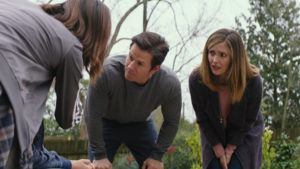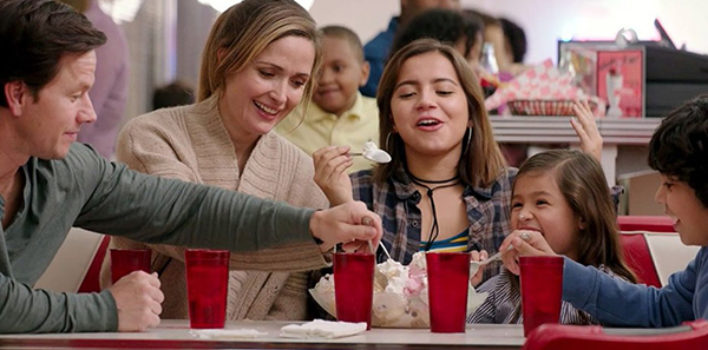Review| Instant Family
 Instant Family is a comedy about a very serious thing: foster care. While the traumas that bring kids away from their birth families and into the foster system are no laughing matter, the messiness that results from imperfect people trying to love one another often can be. In fact, many times laughter is the only way to survive the heart-wrenching challenge of being a family.
Instant Family is a comedy about a very serious thing: foster care. While the traumas that bring kids away from their birth families and into the foster system are no laughing matter, the messiness that results from imperfect people trying to love one another often can be. In fact, many times laughter is the only way to survive the heart-wrenching challenge of being a family.
While I found the humor of Instant Family to be either on point or totally flat, with almost no in-between, this film’s saving grace is its personal origin that lends heart and truth as the backbone of the story. The film is virtually a re-telling of writer and director Sean Anders’ own “instant family” tale. And so the perspective—foster parents Pete and Ellie (played convincingly by Mark Wahlberg and Rose Byrne)—is compelling, believable, and sympathetic.
For those who know very little of the fostering experience, like myself, this film offers a glimpse into its complicated nature: loss and hardship in one hand, joy and beauty in the other. However, Instant Family focuses on the parent side of the equation. Even in its honest portrayal of the sad realities of fostering, I couldn’t help but feel like it was an oversimplification of the foster child’s experience. It teeters on the edge of cursory treatment of serious issues though never quite tips over.
 Of the film, Anders said “when people think of kids in foster care, their thoughts often turn to darkness. I wanted to make a movie that would take people through the difficult adjustments and into the good stuff. And there is so very much good, good stuff.” Despite mixed emotions about the film as a cohesive whole, I can say that Anders hit his mark here. Almost brutally at times, it addresses, even confirms, some of the dark suspicions of outsiders. But the picture it paints of beauty, healing, and redemption—reinforced less obviously than you’d think by the metaphor of house renovation, which is Pete and Ellie’s profession—more than balances the ugliness.
Of the film, Anders said “when people think of kids in foster care, their thoughts often turn to darkness. I wanted to make a movie that would take people through the difficult adjustments and into the good stuff. And there is so very much good, good stuff.” Despite mixed emotions about the film as a cohesive whole, I can say that Anders hit his mark here. Almost brutally at times, it addresses, even confirms, some of the dark suspicions of outsiders. But the picture it paints of beauty, healing, and redemption—reinforced less obviously than you’d think by the metaphor of house renovation, which is Pete and Ellie’s profession—more than balances the ugliness.
The last scene of the film is a perfect example of its effectiveness despite its flaws. Even while you may raise your eyebrow at the logic or realism of some of it, its portrayal of the overcoming, healing power of unconditional love, and the strength that comes from dependence on each other is heartwarming and inspiring.







